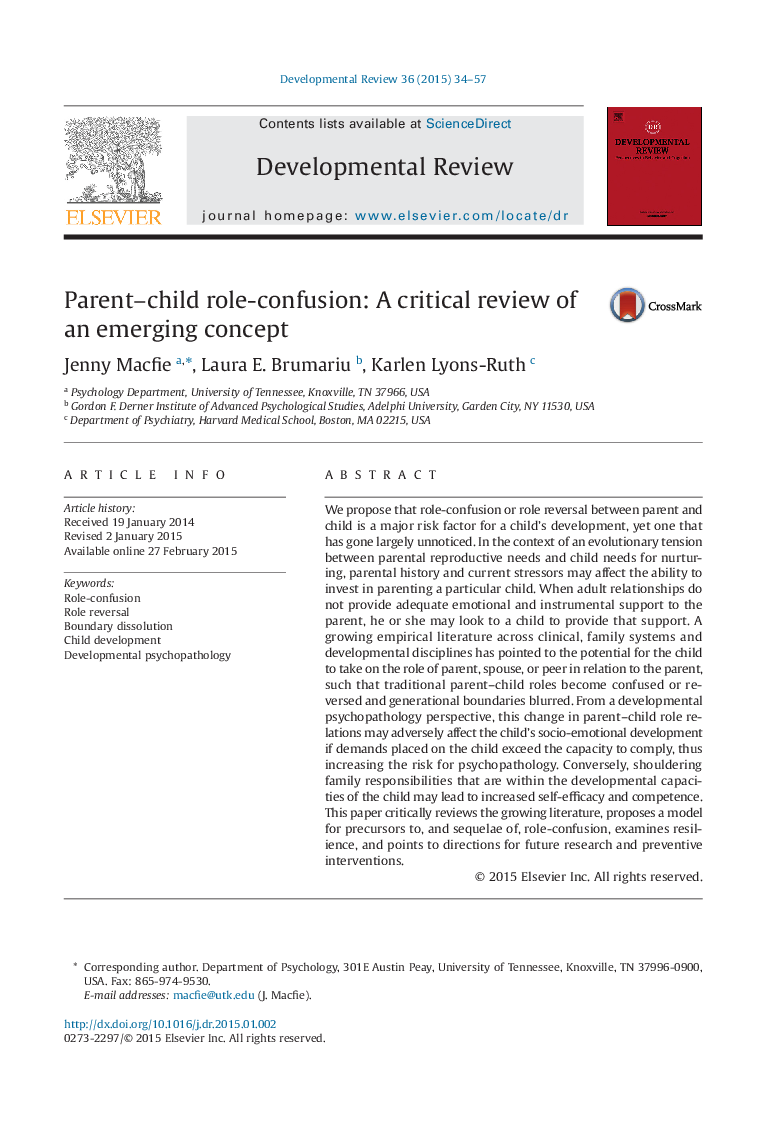| Article ID | Journal | Published Year | Pages | File Type |
|---|---|---|---|---|
| 353462 | Developmental Review | 2015 | 24 Pages |
•An inevitable tension exists between parents' own needs and a child's need for care.•Parents may withdraw from a parental role and look to a child to meet their needs.•The child serves as parent, spouse or peer to his or her parent in role-confused relationships.•The child may look mature but his or her development is deleteriously affected.•We review research on this neglected topic and propose a model to inform interventions.
We propose that role-confusion or role reversal between parent and child is a major risk factor for a child's development, yet one that has gone largely unnoticed. In the context of an evolutionary tension between parental reproductive needs and child needs for nurturing, parental history and current stressors may affect the ability to invest in parenting a particular child. When adult relationships do not provide adequate emotional and instrumental support to the parent, he or she may look to a child to provide that support. A growing empirical literature across clinical, family systems and developmental disciplines has pointed to the potential for the child to take on the role of parent, spouse, or peer in relation to the parent, such that traditional parent–child roles become confused or reversed and generational boundaries blurred. From a developmental psychopathology perspective, this change in parent–child role relations may adversely affect the child's socio-emotional development if demands placed on the child exceed the capacity to comply, thus increasing the risk for psychopathology. Conversely, shouldering family responsibilities that are within the developmental capacities of the child may lead to increased self-efficacy and competence. This paper critically reviews the growing literature, proposes a model for precursors to, and sequelae of, role-confusion, examines resilience, and points to directions for future research and preventive interventions.
